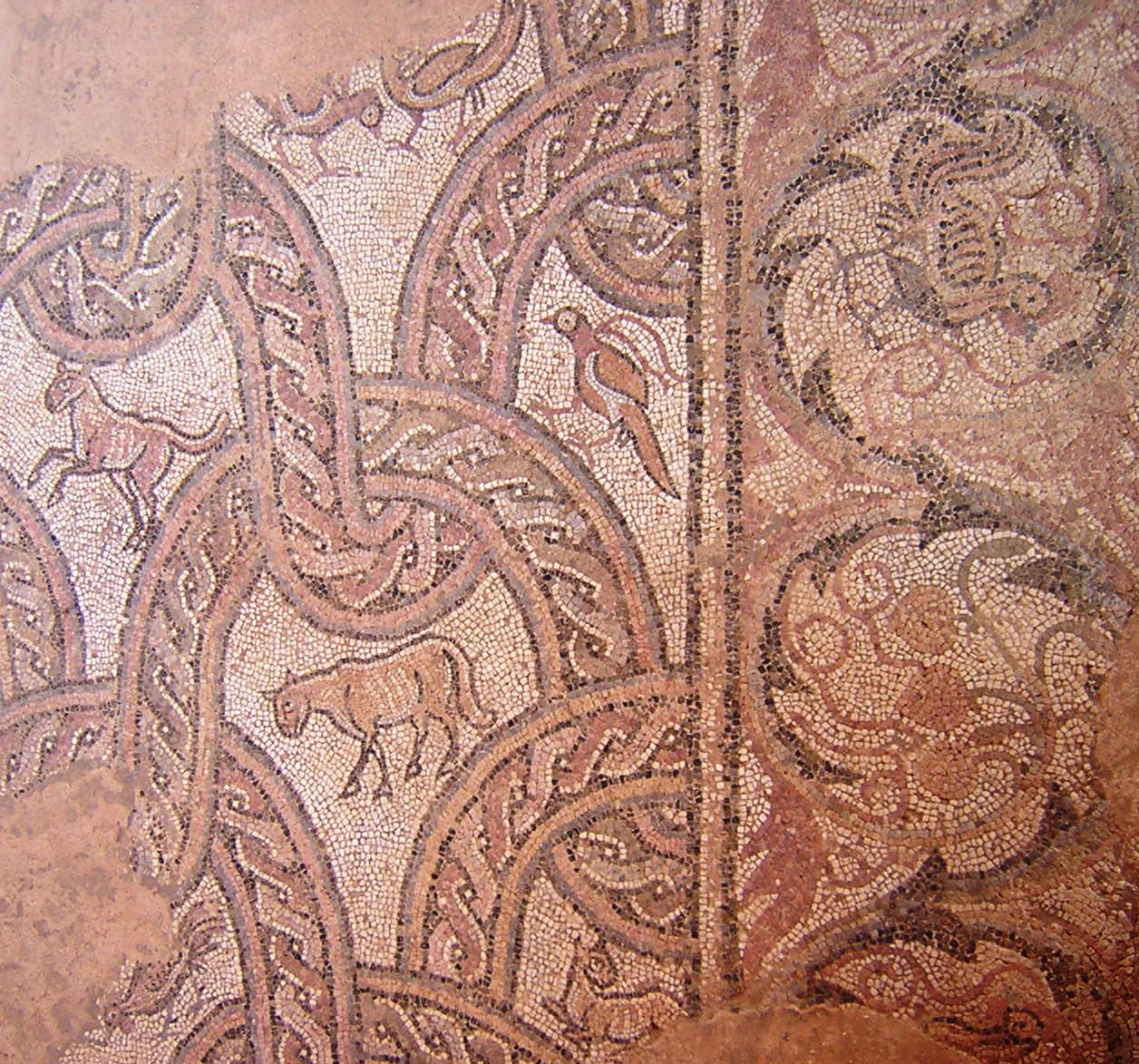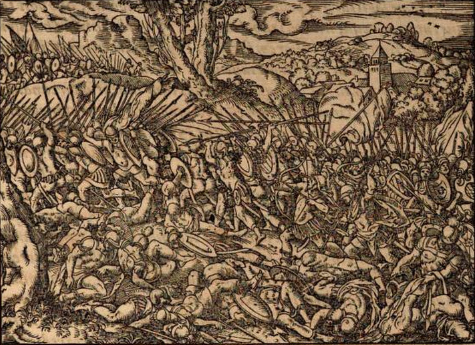Ohrid on:
[Wikipedia]
[Google]
[Amazon]
Ohrid ( mk, Охрид ) is a city in
 In antiquity the city was known under the ancient
In antiquity the city was known under the ancient
 The earliest inhabitants of the widest Lake Ohrid region were the Illyrian
The earliest inhabitants of the widest Lake Ohrid region were the Illyrian


 The South Slavs began to arrive in the area during the 6th century AD. By the early 7th century it was colonized by a Slavic tribe known as the
The South Slavs began to arrive in the area during the 6th century AD. By the early 7th century it was colonized by a Slavic tribe known as the
North Macedonia
North Macedonia, ; sq, Maqedonia e Veriut, (Macedonia before February 2019), officially the Republic of North Macedonia,, is a country in Southeast Europe. It gained independence in 1991 as one of the successor states of Socialist Feder ...
and is the seat of the Ohrid Municipality. It is the largest city on Lake Ohrid and the eighth-largest city in the country, with the municipality recording a population of over 42,000 inhabitants as of 2002. Ohrid is known for once having 365 churches, one for each day of the year, and has been referred to as a "Jerusalem of the Balkans"."The Mirror of the Macedonian Spirit, Zlate Petrovski, Sašo Talevski, Napredok, 2004, , page 72: "... and Macedonia in the Cathedral Church St. Sofia in the Macedonian Jerusalem — Ohrid..." The city is rich in picturesque houses and monuments, and tourism is predominant. It is located southwest of Skopje
Skopje ( , , ; mk, Скопје ; sq, Shkup) is the capital and largest city of North Macedonia. It is the country's political, cultural, economic, and academic centre.
The territory of Skopje has been inhabited since at least 4000 BC; ...
, west of Resen and Bitola
Bitola (; mk, Битола ) is a city in the southwestern part of North Macedonia. It is located in the southern part of the Pelagonia valley, surrounded by the Baba (North Macedonia), Baba, Nidže, and Kajmakčalan mountain ranges, north of th ...
. In 1979 and in 1980 respectively, Ohrid and Lake Ohrid were accepted as Cultural and Natural World Heritage Site
A World Heritage Site is a landmark or area with legal protection by an international convention administered by the United Nations Educational, Scientific and Cultural Organization (UNESCO). World Heritage Sites are designated by UNESCO for ...
s by UNESCO
The United Nations Educational, Scientific and Cultural Organization is a specialized agency of the United Nations (UN) aimed at promoting world peace and security through international cooperation in education, arts, sciences and culture. I ...
. Ohrid is one of only 28 sites that are part of UNESCO's World Heritage that are Cultural as well as Natural sites.
Name
 In antiquity the city was known under the ancient
In antiquity the city was known under the ancient Greek
Greek may refer to:
Greece
Anything of, from, or related to Greece, a country in Southern Europe:
*Greeks, an ethnic group.
*Greek language, a branch of the Indo-European language family.
**Proto-Greek language, the assumed last common ancestor ...
name of Λυχνίς (''Lychnis'') and Λυχνιδός (''Lychnidos'') and the Latin
Latin (, or , ) is a classical language belonging to the Italic branch of the Indo-European languages. Latin was originally a dialect spoken in the lower Tiber area (then known as Latium) around present-day Rome, but through the power ...
''Lychnidus'', probably meaning "city of light", literally "a precious stone that emits light", from λύχνος (''lychnos''), "lamp, portable light". Polybius, writing in the second century BC, refers to the town as Λυχνίδιον - ''Lichnidion''. It became capital of the First Bulgarian Empire in the early medieval period, and was often referred to by Byzantine
The Byzantine Empire, also referred to as the Eastern Roman Empire or Byzantium, was the continuation of the Roman Empire primarily in its eastern provinces during Late Antiquity and the Middle Ages, when its capital city was Constantin ...
writers as ''Achrida'' (Ἄχριδα, Ὄχριδα, or Ἄχρις). By 879 AD, the town was no longer called Lychnidos but was referred to as ''Ohrid''. It has been proposed by Katičić that the modern name is a modified version of the ancient Greek name, where the transition of "Lychnidus" to "Ohrid" presupposes a characteristic sound development from Albanian which may have thereby entered Slavic. According to Doikov, ''Ohrid'' may have originated from the Slavic expression "во рид" (''vo rid'') meaning "on hill". In Macedonian
Macedonian most often refers to someone or something from or related to Macedonia.
Macedonian(s) may specifically refer to:
People Modern
* Macedonians (ethnic group), a nation and a South Slavic ethnic group primarily associated with North M ...
and the other South Slavic languages, the name of the city is ''Ohrid'' (Охрид). In Albanian, the city is known as ''Ohër'' or ''Ohri'' and in modern Greek ''Ochrida'' (Οχρίδα, Ωχρίδα) and ''Achrida'' (Αχρίδα). The name of the city in Aromanian is or .
History
Antiquity
 The earliest inhabitants of the widest Lake Ohrid region were the Illyrian
The earliest inhabitants of the widest Lake Ohrid region were the Illyrian tribes
The term tribe is used in many different contexts to refer to a category of human social group. The predominant worldwide usage of the term in English is in the discipline of anthropology. This definition is contested, in part due to confl ...
of Enchele and Dassaretii. According to a tradition the town, called Lychnidos ( grc, Λυχνιδός) in classical antiquity, was founded by the Phoenician king of Thebes, Cadmus
In Greek mythology, Cadmus (; grc-gre, Κάδμος, Kádmos) was the legendary Phoenician founder of Boeotian Thebes. He was the first Greek hero and, alongside Perseus and Bellerophon, the greatest hero and slayer of monsters before the ...
, who, banished from Thebes, in Boeotia
Boeotia ( ), sometimes Latinisation of names, Latinized as Boiotia or Beotia ( el, wikt:Βοιωτία, Βοιωτία; modern Greek, modern: ; ancient Greek, ancient: ), formerly known as Cadmeis, is one of the regional units of Greece. It is pa ...
, fled to the Enchele to the north and founded Lychnidus on the shore of Lake Ohrid and Budva in Montenegro
)
, image_map = Europe-Montenegro.svg
, map_caption =
, image_map2 =
, capital = Podgorica
, coordinates =
, largest_city = capital
, official_languages = ...
. Lychnidos was the capital city of the Illyrian Dassaretii.
According to recent excavations this was a town as early as of the era of king Philip II of Macedon
Philip II of Macedon ( grc-gre, Φίλιππος ; 382 – 21 October 336 BC) was the king ('' basileus'') of the ancient kingdom of Macedonia from 359 BC until his death in 336 BC. He was a member of the Argead dynasty, founders of the a ...
.
They conclude that Samuil's Fortress
Samuel's Fortress ( mk, Самуилова тврдина, translit=Samuilova tvrdina, bg, Самуилова крепост, translit=Samuilova krepost) is a fortress in the old town of Ohrid, North Macedonia. It was the capital of the First B ...
was built on the place of an earlier fortification, dated to 4th century BC. In 210 BCE, Philip V of Macedon raided a number of southern Illyrian communities. He maintained a garrison at Lychnidus but lost control of the settlement in 208 BCE, when its commander joined local leader Aeropus and invited the Dardani
The Dardani (; grc, Δαρδάνιοι, Δάρδανοι; la, Dardani) or Dardanians were a Paleo-Balkan people, who lived in a region that was named Dardania after their settlement there. They were among the oldest Balkan peoples, and their ...
in the region.
During the Roman conquests, towards the end of 3rd and the beginning of 2nd century BC, Lychnidus is mentioned as a town near or within Dassaretia. In Roman times it was located along the '' Via Egnatia'', which connected the Adriatic port Dyrrachion (present-day Durrës
Durrës ( , ; sq-definite, Durrësi) is the second most populous city of the Republic of Albania and seat of Durrës County and Durrës Municipality. It is located on a flat plain along the Albanian Adriatic Sea Coast between the mouths of the ...
) with Byzantium. Archaeological excavations (e.g., the Polyconch Basilica from 5th century) prove early adoption of Christianity in the area. Bishops from Lychnidos participated in multiple ecumenical
Ecumenism (), also spelled oecumenism, is the concept and principle that Christians
Christians () are people who follow or adhere to Christianity, a monotheistic Abrahamic religion based on the life and teachings of Jesus Christ. The wo ...
councils.
Middle Ages
 The South Slavs began to arrive in the area during the 6th century AD. By the early 7th century it was colonized by a Slavic tribe known as the
The South Slavs began to arrive in the area during the 6th century AD. By the early 7th century it was colonized by a Slavic tribe known as the Berziti The Berziti (Bulgarian, Macedonian and sr, Берзити; el, Βερζῆτες) were a South Slavic tribe that settled in Byzantine Macedonia in the 7th century AD with the Slavic invasion of the Balkans. The Berziti settled in the vicinity o ...
. Bulgaria conquered the city around 840.
The name ''Ohrid'' first appeared in 879. The Ohrid Literary School established in 886 by Clement of Ohrid became one of the two major cultural centres of the First Bulgarian Empire. Between 990 and 1015, Ohrid was the capital and stronghold of the Bulgarian Empire.
From 990 to 1018 Ohrid was also the seat of the Bulgarian Patriarchate. After the Byzantine
The Byzantine Empire, also referred to as the Eastern Roman Empire or Byzantium, was the continuation of the Roman Empire primarily in its eastern provinces during Late Antiquity and the Middle Ages, when its capital city was Constantin ...
reconquest of the city in 1018 by Basil II, the Bulgarian Patriarchate was downgraded to an Archbishopric of Ohrid, and placed under the authority of the Ecumenical Patriarch of Constantinople
The ecumenical patriarch ( el, Οἰκουμενικός Πατριάρχης, translit=Oikoumenikós Patriárchēs) is the archbishop of Constantinople ( Istanbul), New Rome and ''primus inter pares'' (first among equals) among the heads of th ...
.
The higher clergy after 1018 was almost invariably Greek, including during the period of Ottoman domination, until the abolition of the archbishopric in 1767. At the beginning of the 16th century the archbishopric reached its peak subordinating the Sofia
Sofia ( ; bg, София, Sofiya, ) is the Capital city, capital and List of cities and towns in Bulgaria, largest city of Bulgaria. It is situated in the Sofia Valley at the foot of the Vitosha mountain in the western parts of the country. ...
, Vidin, Vlach and Moldavia
Moldavia ( ro, Moldova, or , literally "The Country of Moldavia"; in Romanian Cyrillic: or ; chu, Землѧ Молдавскаѧ; el, Ἡγεμονία τῆς Μολδαβίας) is a historical region and former principality in Centra ...
n eparchies, part of the former medieval Serbian Patriarchate of Peć, (including Patriarchal Monastery of Peć itself), and even the Orthodox districts of Italy ( Apulia, Calabria and Sicily
(man) it, Siciliana (woman)
, population_note =
, population_blank1_title =
, population_blank1 =
, demographics_type1 = Ethnicity
, demographics1_footnotes =
, demographi ...
), Venice
Venice ( ; it, Venezia ; vec, Venesia or ) is a city in northeastern Italy and the capital of the Veneto region. It is built on a group of 118 small islands that are separated by canals and linked by over 400 bridges. The isla ...
and